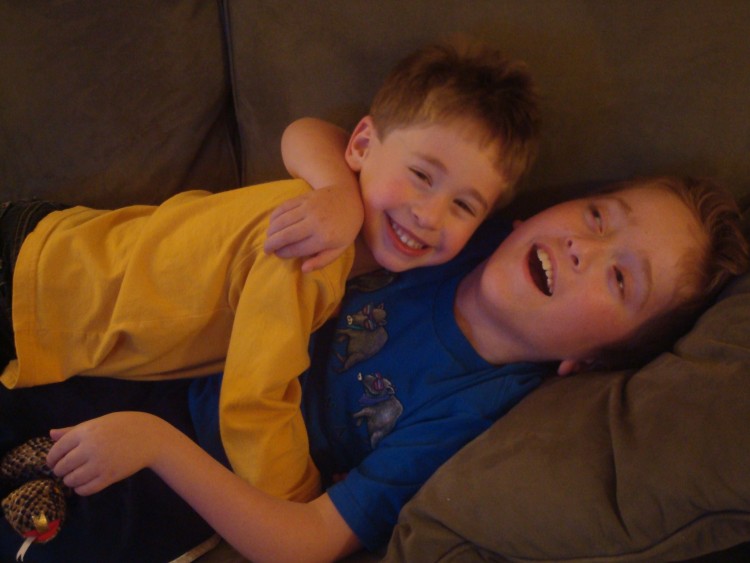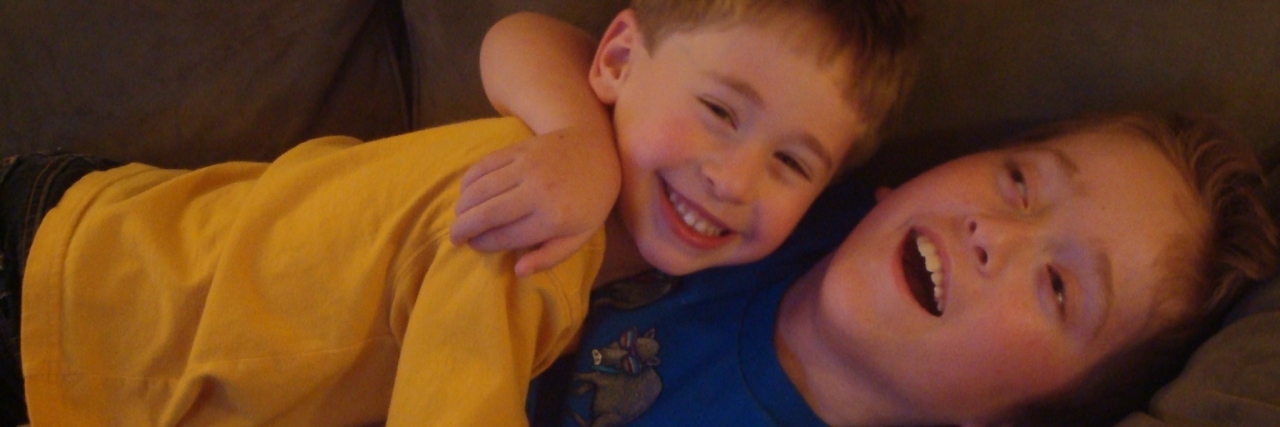The other day while I was watching my healthy 13-year-old son at his nightly wrestling practice, I was reading something online that made me start crying. Another parent asked me if I was OK or if I needed help. I quickly explained that I had just read something really sad online about a very sick child. This dad is new to our team and he didn’t know about my other child (my “sick” child), so I proceeded to tell him about Max. I explained that I had been reading about another child with the same disease who wasn’t doing well and it made me sad for the other family. I also explained how grateful I felt to have my own son alive and relatively healthy at 18 years of age.

I thought my description of Max’s happy life would lighten the mood. I gave the usual details about all the experimental treatments Max has received and how he has defied the odds. I thought that my glowing love-filled account would make this concerned wrestling dad see the beauty in Max’s wonderful life.
I showed the dad pictures of Max playing buddy baseball, riding a horse, smiling and laughing. I tried to let him know that it was OK — that I was OK and that Max was OK. But absolutely none of this seemed to register. Not one picture of my smiling boy got through to this man.
The dad looked at me and said, “Well, if you don’t have your health, you don’t have anything.”
I usually just let comments like this roll off my shoulders because some people just don’t get it, and they possibly never will. He saw straight through the beautiful child and only saw a wheelchair.
What would I say to people who believe that if you’re not healthy, you have nothing?
I would say, “No, that’s not true at all.”
Without perfect health there is survival, life, beauty, love, acceptance and a desire to be on this Earth for as long as possible, even in a “less than perfect” body.
Just because a person may live with an illness visible or otherwise doesn’t mean they have nothing, or that they are nothing. There are people fighting to be here, fighting for the life others might not see value in. People that might not appear “valuable” to you are cherished members of their families and productive members of their communities who happen to have some sort of illness.
I compare caring for my son to taking care of a beautiful garden. Some children might be more like prairie grass, lower-maintenance and growing easily with little specialized care. Prairie grasses are hearty and sturdy with wildflowers springing up effortlessly. Prairie grass is meant to survive on its own and spread throughout the land for everyone to see and admire. It is beautiful, wild and can survive without much help.
My son is more like a garden planted in a hostile climate where specialized care is necessary. My garden can grow, thrive and even produce beautiful flowers. But this type of garden needs an expert gardening crew to make sure all the conditions necessary for survival are met and maintained. This garden will not be wild and spread throughout the land because it will need to grow in a beautiful greenhouse. People can still admire the beauty, care and love that go into maintaining this delicate garden. This garden may be high-maintenance and may not survive on its own; it needs constant care. But the care is done out of love.
Some of the most beautiful flowers can require the most care, and they may only bloom for a short time.
Life is a good thing; it’s beautiful and fleeting. Life is something to be marveled. Some lives may seem easier than others, but all life has beauty and value if you choose to see it.
The Mighty is asking the following: Tell us a story about a time you encountered a commonly held misconception about you or your loved one’s disability or illness. How did you react, and what do you want to tell people who hold this misconception? Check out our Submit a Story page for more about our submission guidelines.

